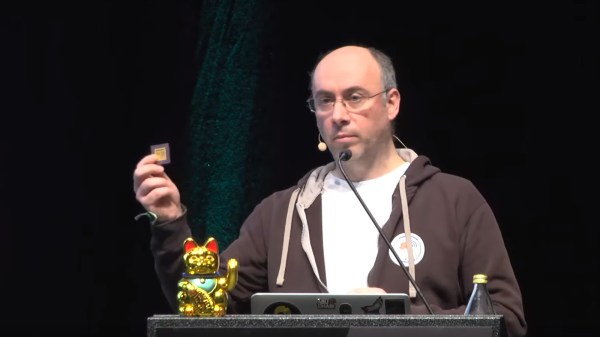Among the current challenges with creating quantum computers is that the timespan that a singular qubit remains coherent is quite limited, restricting their usefulness. Usually such qubits consist of an electromagnetic resonator (boson), which have the advantage of possessing discrete energy states that lend themselves well to the anharmonicity required for qubits. Using mechanical resonators would be beneficial due to the generally slower decoherence rate, but these have oscillations (phonons) that are harmonic in nature. Now researchers may have found a way to use both electromagnetic qubits and mechanical resonators to create a hybrid form that acts like a mechanical qubit, with quite long (200 µs) coherence time.
As per the research paper by [Yu Yang] and colleagues in Science (open access preprint), their experimental mechanical qubit (piezoelectric disc and superconducting qubit on sapphire) was able to be initialized and read out, with single-qubit gates demonstrated. The experimental sequence for the phonon anharmonicity measurement is shown in the above image (figure 2 in the paper), including the iSWAP operations which initialize the hybrid qubit. Effectively this demonstrates the viability of such a hybrid, mechanical qubit, even if this experimental version is not impressive yet compared to the best electromagnetic qubit. Those have managed to hit a coherence time of 1 ms.
The lead researcher, [Yu Yang] expresses his confidence that they can improve this coherence time with more optimized designs and materials, with future experiments likely to involve more complex quantum gates as well as sensor designs.














